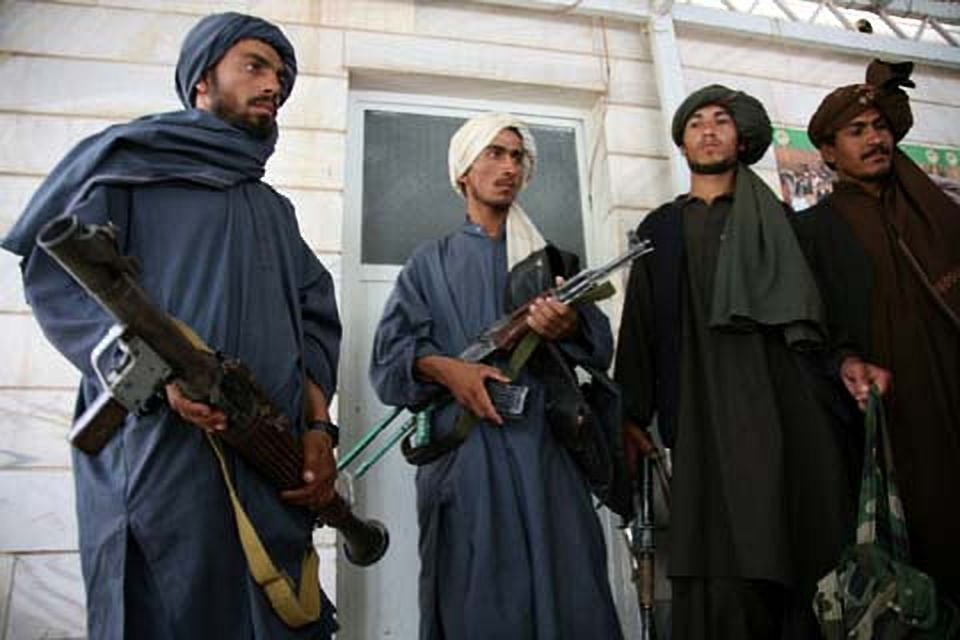India’s retired diplomats of the Afghanistan-Pakistan region are headed for Moscow to be observers at Russia-led talks on the Afghan peace process.
New Delhi: Nineteen years after the Kandahar IC-814 hijacking in Afghanistan, where former foreign minister Jaswant Singh asked the Taliban for help, India will publicly sit at the same table as the Islamist organisation at a Russia-led conference for peace in Afganistan Friday.
TCA Raghavan, the head of the Indian Council of World Relations, a thinktank of the Ministry of External Affairs (MEA), who recently retired as high commissioner to Pakistan, and Amar Sinha, recently retired as ambassador to Afghanistan and currently a member of the Research & Information Service, an MEA-funded thinktank, are India’s observers to the Moscow conference.
The highly structured move, which carefully takes into account both protocol and diplomatic relations, was carefully coordinated between Delhi, Kabul and Moscow, top diplomatic sources said.
“Close consultations have taken place between India, Afghanistan and the US on attending the Moscow conference,” the sources said.
“But there will be no talking or intervening on the part of the Indian representatives, just listening,” a second source said.
Moscow, keen on inserting itself into the approaching endgame of the Afghan peace process, had to postpone the conference from September after the Afghan government as well as the US pulled out at the last minute.
This time, the Russians, miffed with the US’ cancellation, turned down Washington’s proposal to send a representative from the American thinktank US Institute of Peace. But it accepted the participation of a low-level US diplomat from its Moscow embassy, the sources added.
Interestingly, Zalmay Khalilzad, the US special envoy to the Afghan peace process, will later this month visit Pakistan, Afghanistan, Qatar and the UAE in order to kick-start President Donald Trump’s deep desire to create a semblance of peace and get out of Afghanistan.
The Americans are desperately hoping that by participating in the Moscow talks, Russia will not attempt to derail Washington’s peace attempts around Khalilzad.
Delhi was forced to cancel its participation at the Moscow talks in September, when the Afghans and the Americans pulled out, suffering some embarrassment in the process.
This time around, the Americans, the Afghans and India have closely coordinated their participation in Moscow.
Certainly, India is keenly aware that its participation in Moscow will be closely watched. Raghavan or Sinha will not intervene in any of the discussions because they are mere observers to the talks, but their presence is significant enough.
Also read: ‘Father of the Taliban’ calls on China to aid Afghan peace talks
‘Taliban wants contact with India’
However, the fact remains that India has maintained some sort of contact with Taliban officials behind the scenes over the years.
“The Taliban wants contacts with India,” Taliban’s former ambassador to Pakistan Abdul Salam Zaeef told this reporter. “The Pashtuns have maintained contact with India for centuries, so why not continue?”
Ashraf Ghani’s government in Kabul has also encouraged some contact between the Taliban and India, if only because it exposes the Taliban to other neighbours besides Pakistan.
Ghani, who went out of his way to cultivate relations with the Pakistan military soon after he came to power, has been very critical of Islamabad’s continued efforts at destabilising Afghanistan.
The Modi government’s move to send retired, but highly knowledgeable, diplomats of the Afghanistan-Pakistan region to the Moscow talks is a good sign that India is willing to end its public diplomatic isolation of the Taliban and play a positive role in the peace process.
